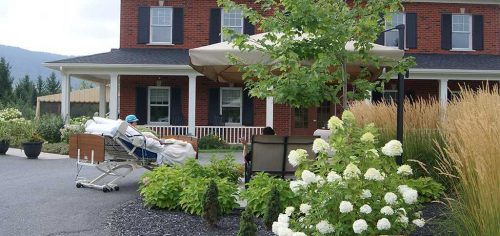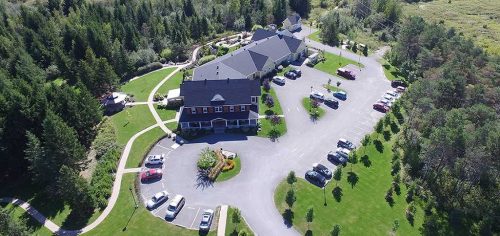Talks on the end of life

Un texte de Charlotte Evans
Paru dans le numéro Été/Summer 2019
Publié le : 3 juin 2019
Dernière mise à jour : 30 octobre 2020
Dying used to be a family and community affair. It was an event that took place in the home, with loved ones caring for the ill and community members rallying in support and solidarity. We knew how to care for and how to be with the dying. We knew how to comfort and support the…
Dying used to be a family and community affair. It was an event that took place in the home, with loved ones caring for the ill and community members rallying in support and solidarity. We knew how to care for and how to be with the dying. We knew how to comfort and support the bereaved.
In the second half of the twentieth century advances in medicine and medical technology shifted the way we perceived and treated illness and the way we died. Wars were waged against illness and aging. Dying represented a failure of medicine. People no longer died at home but rather in hospitals, secluded from family and community. Thus was borne the culture of death denial. We stopped talking about illness and dying, collectively losing the language of end of life. We lost our bearings and were left overwhelmed, uncertain and disillusioned when confronted with advanced illness and dying. We no longer knew what to expect or how to help. We became isolated and disengaged: not knowing what to say or how to be.
Despite this general trend, small groups of clinicians recognised the importance of caring at the end of life. The foundation was laid for a humanistic approach centered on comfort and quality of life. The term Palliative Care was coined and slowly but surely the movement grew. Until recently Palliative Care remained on the sidelines, offered up only when the battle against illness was deemed lost and there was “nothing else to be done”.
In the early twenty first century, public conversations about end of life emerged. New legislations, both Provincial and Federal, sparked discourse and debate about dying with dignity. As a result people seem to be reflecting on their wishes and values. We increasingly have expectations and concerns about care at the end of life. Palliative Care is now recognised as a specialty in and of itself that has plenty to offer in terms of pain and symptom management and psychological and spiritual support. Necessary changes to our health care system are in effect. Widespread training programs for all health professionals are rolling out to inform and sensitise them to the needs both patients and their families at the end of life.
Despite this, end of life care, and particularly Palliative Care, are still widely misunderstood and many myths and misconceptions prevail. What is end of life care? How can I access it? What do I need to know to care for a loved one at the end of life? What kind of support is available for me? What about advanced care planning, what is it and how do I go about it? These questions, and many more will be the object of our upcoming series of public talks, starting in September 2019, geared toward demystifying end of life care and enabling conversations about illness and dying. The talks will be given both in English and in French. Keep an eye on our website www.audiapason.org or call 450 534 2002 for more information.
Charlotte Evans, clinical consultant, La Maison Au Diapason
Since opening in April 2010, La Maison Au Diapason has been caring for patients and supporting their loved ones at the end of life. We strive to optimise quality of life by providing pain and symptom management, psychological and spiritual support, and creating time and space for patients and their families to simply be at the end of life. Our core values are permeated with dignity and compassion and we make every attempt to ease this difficult and vulnerable passage for everyone involved.


